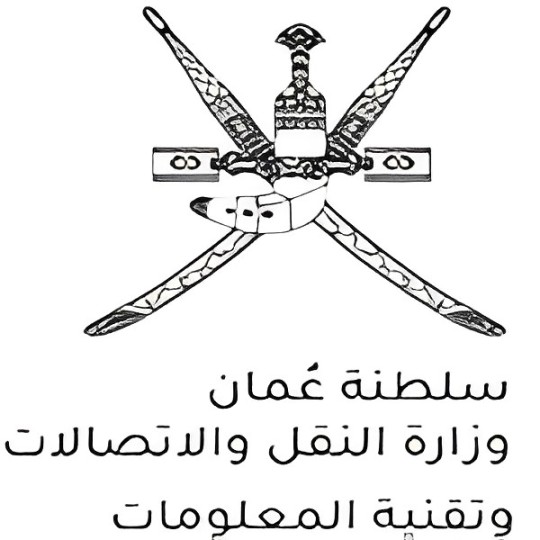+968 9596 3381
Phone Number
[email protected]
Email Address
Mon - Thu: 8:00 - 5:00
Online store always open
Phone Number
Email Address
Online store always open
WhatsApp Us Today
Drop Us an Email Today
Google Map Location
Saturday to Thursday

In the Sultanate of Oman, audited financial statements are far more than a routine accounting exercise; they are a fundamental pillar of corporate governance, a critical requirement for regulatory compliance, and an indispensable tool for accurate tax assessment. For every business operating in Oman, from newly formed entities embarking on their journey to established corporations, understanding the profound importance of audited financials is paramount.
Audited statements provide an independent verification of your company’s financial health, ensuring transparency and adherence to international accounting standards. Within Oman’s tax system, these documents serve as the primary source of truth for calculating tax liabilities, engaging with the Oman Tax Authority (OTA), and maintaining your company’s good standing.
This comprehensive guide will delve into the legal mandates for audited financials in Oman, explain their crucial role in the tax system, and highlight their broader benefits for your business. Setup in Oman facilitates your journey by ensuring proper company registration and connecting you with our trusted network of licensed audit firms, making your compliance seamless and stress-free.
According to Commercial Companies Law and tax regulations, all companies operating in Oman must maintain proper accounting records and submit financial statements annually. While not every business is required to undergo a formal audit, certain types are:
Joint Stock Companies (SAOG, SAOC)
Large Limited Liability Companies (LLCs)
Companies in regulated industries (banking, insurance, oil & gas)
Foreign-owned entities or subsidiaries
Businesses exceeding thresholds set by OTA
SME Insight: Even if your company is not legally required to audit, having audited financials increases trust with stakeholders and reduces scrutiny.
The OTA relies on financial statements to verify taxable income, assess VAT liabilities, and ensure businesses pay accurate corporate tax. Audited financials:
Demonstrate credibility of reported profits
Reduce the risk of tax reassessment
Simplify tax audits and queries
Help defend tax positions in case of disputes
If discrepancies exist between your tax return and financial statements, OTA may impose fines or request a detailed tax audit.
Audited statements minimize reporting errors and ensure your tax liabilities are calculated correctly. This reduces the risk of underpayment, overpayment, or non-compliance.
Banks in Oman often request audited reports for loan approvals or credit extensions. Audits also help attract foreign investors who require transparency.
Government and oil & gas sector tenders frequently require audited financials from bidders.
Audits improve internal controls, financial discipline, and accountability within your organization.
Audits provide a third-party review of your finances, catching common issues like:
Misclassification of revenue or expenses
Incorrect depreciation or amortization schedules
Unrecorded liabilities or provisions
VAT mismatches
Transfer pricing errors in foreign-owned companies
Addressing these proactively reduces compliance risks and potential penalties from OTA.
Consider an audit if your business:
Is applying for significant bank loans
Wants to attract investors or partnerships
Plans to expand internationally
Has complex VAT or tax exposures
Operates multiple branches or subsidiaries
Is preparing for exit, merger, or acquisition
Pro tip: Even startups can benefit by voluntarily auditing once they cross OMR 100,000 in annual turnover.
Only licensed audit firms registered with the Ministry of Commerce, Industry and Investment Promotion (MoCIIP) and recognized by OTA are authorized to audit company financials in Oman.
Some of the top firms include:
Deloitte Oman
KPMG Oman
EY Oman
BDO Oman
Local firms with OTA accreditation
Ensure your auditor issues an Audit Report signed and dated in compliance with International Standards on Auditing (ISA) and IFRS.
A complete audited financial statement includes:
Auditor’s Opinion
Balance Sheet
Income Statement (P&L)
Cash Flow Statement
Statement of Changes in Equity
Notes to the Financial Statements
Management Representation Letter
These must be submitted in Arabic or bilingual format if requested by OTA or financial institutions.
The corporate income tax rate in Oman is currently:
15% for most companies
3% for SMEs meeting specific conditions
Audited financials help ensure:
Correct taxable income calculations
Accurate expense deductions
Valid recognition of losses and carry-forwards
Proper adjustments for non-deductible items
Without audits, OTA may reject questionable deductions or impose additional taxes and penalties.
If your business submits misleading, inaccurate, or unaudited statements (where required), OTA may:
Disallow deductions
Apply estimated assessments
Impose fines (can exceed OMR 5,000)
Conduct a detailed tax inspection
Delay VAT refunds or deregister your TRN




Oman’s robust regulatory framework leaves no doubt about the necessity of audited financial statements for most businesses:
Commercial Companies Law (Royal Decree 18/2019): This pivotal law mandates that almost all types of Omani companies, including Limited Liability Companies (LLCs), Closed Joint Stock Companies (SAOCs), and Public Joint Stock Companies (SAOGs), are required to prepare annual financial statements in accordance with International Financial Reporting Standards (IFRS) and have them audited by a licensed external auditor.
While minor exceptions exist for certain very small sole proprietorships or specific professional establishments below a very low threshold, for the vast majority of commercial entities, the annual audit is non-negotiable.
Income Tax Law (Royal Decree 28/2009, as amended): This law directly links audited financials to tax compliance. It explicitly requires taxpayers to submit audited financial statements along with their annual income tax return to the Oman Tax Authority (OTA). These statements form the basis upon which the company’s taxable profit is determined.
Capital Market Authority (CMA) Regulations: For publicly listed companies on the Muscat Stock Exchange (MSX) and other entities regulated by the CMA (e.g., financial services firms), the requirements for independent audits are even more stringent, with specific deadlines and disclosures.
Specific Sector Regulations: Certain industries or ministries may have additional audit requirements tailored to their specific regulations, further emphasizing the need for professional financial oversight.
This comprehensive legal framework underscores that an annual audit is not merely a formality but a fundamental compliance obligation in Oman.
The relationship between your company’s audited financial statements and Oman’s tax system is intricate and vital:
Primary Basis for Tax Assessment: The audited Statement of Profit or Loss (Income Statement) is the foundational document for calculating your Corporate Income Tax (CIT) liability. The OTA starts its assessment from the net profit/loss shown in these audited statements, making adjustments for non-deductible expenses or non-taxable income as per the Income Tax Law.
Verification of Deductible Expenses: Auditors rigorously examine all recorded expenses, ensuring they are legitimate, properly classified, and incurred “wholly and exclusively” for the purpose of generating taxable income. This independent verification significantly aids in justifying allowable deductions claimed in your tax return, reducing the likelihood of disallowances by the OTA.
Accuracy of Revenue Recognition: The audit process confirms that all revenue, whether from local sales, exports, or other sources, is accurately recognized and recorded in accordance with IFRS. This ensures that all taxable income is fully declared.
Withholding Tax (WHT) Compliance: Auditors review whether the company has correctly identified, withheld, and remitted WHT on payments to non-residents (e.g., on royalties, interest, service fees) as per the Income Tax Law and any applicable Double Taxation Agreements (DTAs). Any errors here could lead to penalties.
VAT Compliance (Indirectly): While VAT is based on transactions rather than profit, the underlying sales and purchase data that forms the basis of VAT returns are part of the overall financial records. The integrity and accuracy validated by an audit indirectly support the credibility of your VAT declarations.
Credibility with the Oman Tax Authority (OTA): Submitting audited financial statements lends significant credibility to your company’s tax declarations. The OTA is more likely to accept the figures presented, potentially reducing the frequency or intensity of tax audits. It demonstrates a commitment to transparency and adherence to legal requirements.
Facilitates Tax Audits and Dispute Resolution: In the event of a tax audit or a dispute with the OTA, well-prepared and independently audited financial statements provide a reliable and verifiable basis for discussion and resolution, often speeding up the process and strengthening your position.
Transfer Pricing Considerations: While not a direct audit requirement, the audit process often provides an opportunity to review related-party transactions, which are subject to transfer pricing scrutiny by the OTA, especially for multinational groups.
The advantages of independent audits extend far beyond meeting tax obligations:
Enhanced Credibility and Trust: Audited financials provide assurance to shareholders, potential investors, lenders, suppliers, and customers regarding the financial health and integrity of your business. This is crucial for attracting investment and securing financing.
Improved Internal Controls: The audit process scrutinizes your company’s internal control systems. Auditors often identify weaknesses and recommend improvements, which can enhance operational efficiency, reduce fraud risk, and strengthen overall governance.
Better Financial Management: An independent review offers valuable insights into your company’s financial performance, position, and cash flows, enabling management to make more informed and strategic decisions.
Facilitates Funding and Investment: Banks and other financial institutions almost invariably require audited financial statements before granting loans or lines of credit. Similarly, potential investors or acquirers rely heavily on audited data during due diligence processes.
Fraud Detection and Prevention: While not their primary purpose, audits can deter fraudulent activities and, in many cases, uncover anomalies or irregularities that may indicate fraud.
Risk Management: The audit process helps identify financial risks and vulnerabilities, allowing management to develop strategies for mitigation.
The typical audit process in Oman involves:
Appointment of Auditors: Companies must appoint an independent auditor who is licensed by the Financial Services Authority (FSA), registered with the Ministry of Commerce, Industry, and Investment Promotion (MoCIIP), and a member of the Oman Association of Certified Public Accountants (OACPA).
Audit Planning: The auditor gains an understanding of your business, its operations, internal controls, and associated risks. They develop a detailed audit plan.
Fieldwork and Testing: This involves examining financial records, testing transactions, verifying balances, confirming assets and liabilities, and evaluating internal controls.
Reporting: The auditor issues an independent opinion on whether the financial statements present a true and fair view of the company’s financial position and performance in accordance with IFRS.
Submission: The audited financial statements, along with the audit report, are submitted to the MoCIIP and the Oman Tax Authority (OTA) within stipulated deadlines.
Selecting the right audit firm is as crucial as understanding the audit mandate. When choosing an auditor in Oman, consider:
Licensing and Regulatory Compliance: Ensure the firm is fully licensed by the FSA and MoCIIP, and its professionals are members of OACPA.
Expertise in Omani Tax Laws and IFRS: They must have deep knowledge of both the local tax framework and international accounting standards.
Reputation and Track Record: Look for a firm with a strong reputation for integrity, professionalism, and quality service.
Industry Experience: Experience in your specific sector can be a significant advantage.
Communication and Relationship: Choose a firm that communicates clearly, is accessible, and fosters a collaborative relationship.
Ensuring your company adheres to Oman’s audit requirements is a critical aspect of compliance. Setup in Oman provides integral support that directly or indirectly facilitates this process:
Company Formation: The legal structure chosen during company formation in Oman (e.g., LLC, SAOC) dictates the statutory audit requirements. We ensure your entity is legally established, laying the groundwork for all subsequent compliance, including the mandatory annual audit.
Corporate Bank Account: Robust audit trails depend on transparent financial transactions. Our assistance in opening your corporate bank account in Oman ensures all banking activities are meticulously recorded, providing the clear financial data essential for a smooth and accurate audit process.
PRO Services: The submission of audited financial statements to the Ministry of Commerce, Industry, and Investment Promotion (MoCIIP) and the Oman Tax Authority (OTA) is a crucial compliance step. Our PRO Services ensure these vital documents are filed accurately and on time, maintaining your company’s regulatory good standing and mitigating risks of penalties.
Accounting & Audit Referral: “Navigating the landscape of licensed audit firms in Oman can be complex. Setup in Oman acts as your trusted connector, leveraging our extensive network to introduce you to reputable, licensed audit firms in Oman. These firms possess the expertise in Omani tax laws and IFRS to conduct your statutory audits efficiently and effectively, ensuring your tax compliance and financial integrity.
Investor Visa & Work Visa: For the senior financial management or international experts who will oversee your company’s financial operations and interact with your auditors, securing proper residency is key. Our Investor Visa and Work Visa services facilitate their legal presence, enabling them to ensure robust financial controls and a seamless audit process.
Timeliness: Ensuring your books are ready for audit well in advance of tax filing deadlines is crucial to avoid late submission penalties.
Quality of Records: Inaccurate or incomplete financial records can significantly prolong and complicate the audit process, leading to higher audit fees.
Understanding Audit Adjustments: Be prepared for potential audit adjustments, which can impact your declared taxable profit.
Choosing the Right Auditor: Invest time in selecting a reputable and experienced auditor who understands your industry and Omani specificities.





Are audits mandatory for all companies in Oman?
No, but they are required for listed companies, large LLCs, regulated sectors, and many foreign-owned businesses.
Will having an audit help me during a tax audit?
Yes, it improves your credibility with OTA and may reduce the scope or intensity of tax audits.
Can SMEs voluntarily get audited?
Absolutely, and it’s recommended if you’re growing, seeking investment, or preparing for future expansion.
What’s the difference between audited and unaudited financials?
Audited financials are independently verified by licensed auditors, while unaudited reports are internal and not certified.
Does the Oman Tax Authority accept foreign audit reports?
Only if issued by an OTA-approved auditor in Oman. International firms must operate locally and hold local licensing.
Audited financial statements are not just a regulatory hurdle in Oman; they are a powerful tool for demonstrating accountability, building trust, and making informed decisions. Within Oman’s tax system, they are the cornerstone upon which your tax liabilities are assessed and your compliance is validated. By embracing the audit process with a professional approach, you not only meet your legal obligations but also gain valuable insights into your financial performance.
Are you setting up a business in Oman or need assistance with your annual audit requirements to ensure tax compliance and financial credibility? Partner with Setup in Oman. We guide you through the essential steps of company formation and seamlessly connect you with leading licensed audit firms in the Sultanate, ensuring your financial reporting is robust, compliant, and reflective of your business’s true health.
Contact Setup in Oman today for a consultation and build a foundation of financial excellence for your venture in Oman.
Fill out our quick and easy contact form below. Briefly tell us about your vision and goals, and we’ll be in touch shortly to discuss a personalized plan for your success.
Al-Khuwair, Muscat, Sultanate of Oman